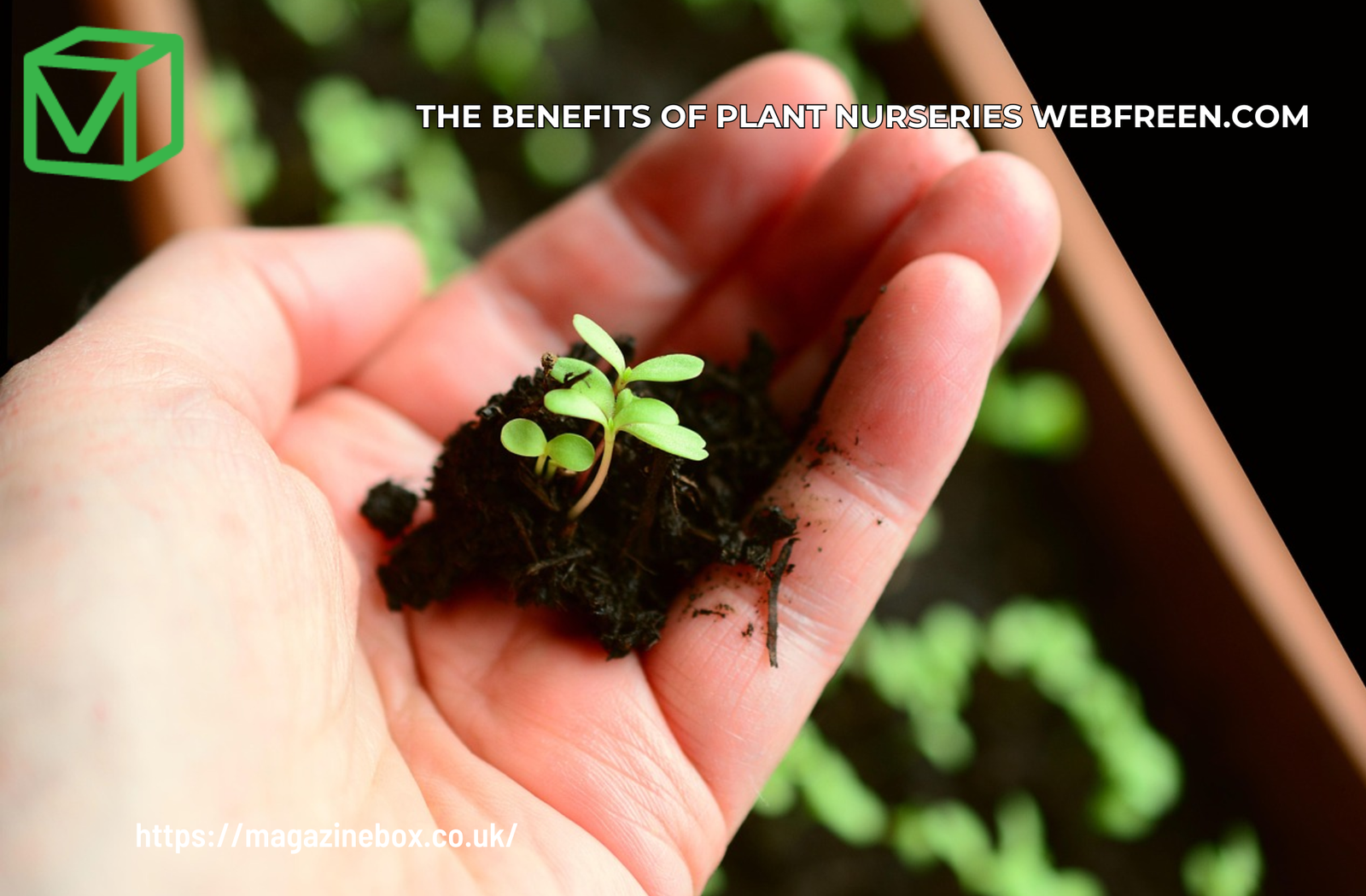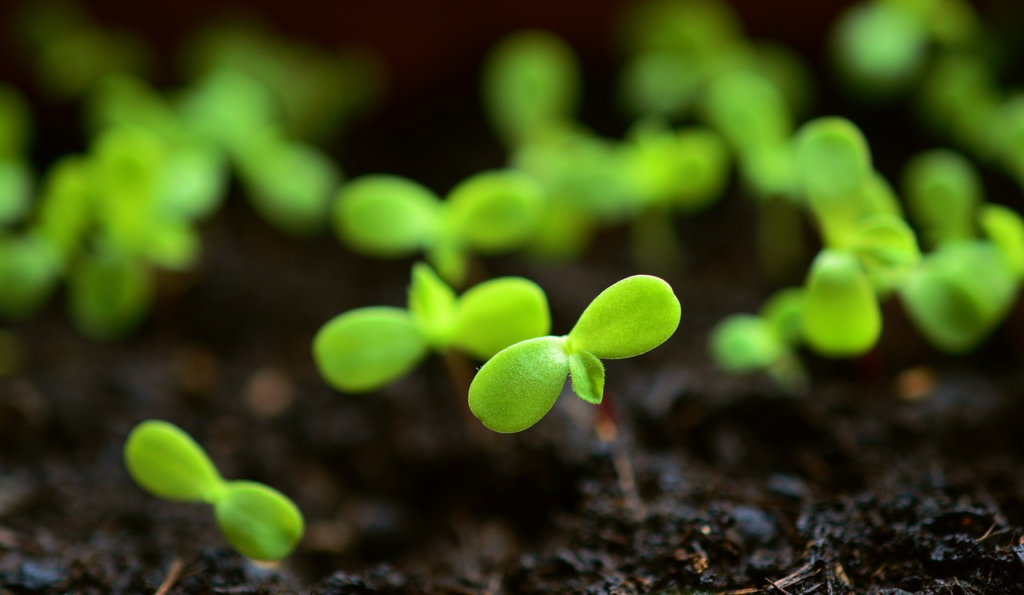The Benefits of Plant Nurseries Webfreen.com

Introduction
“The Benefits of Plant Nurseries Webfreen.com”
Plant nurseries play a vital role in providing high-quality plants, trees, and flowers for various purposes, including gardening, landscaping, and environmental conservation. Whether you are an avid gardener, a homeowner looking to enhance your outdoor space, or a business seeking sustainable landscaping solutions, plant nurseries offer numerous benefits. In this article, we will explore the many advantages of plant nurseries and why they are essential for the environment and plant lovers alike.
1. High-Quality and Healthy Plants
One of the primary benefits of purchasing plants from a nursery is the quality and health of the plants. Unlike plants sold in general retail stores, nurseries specialize in plant care and growth, ensuring that the plants are well-nurtured before reaching customers. These plants are grown under controlled conditions, provided with proper nutrients, and monitored for any diseases or pests, making them more likely to thrive when transplanted into gardens or landscapes.
2. Wide Variety of Plants
Plant nurseries offer a vast selection of plants, ranging from ornamental flowers and shrubs to fruit-bearing trees and rare species. Whether you are looking for indoor plants, exotic flowers, or native trees suited to your local climate, nurseries provide options that cater to different gardening needs. This variety allows gardeners and landscapers to choose plants that best suit their preferences and environmental conditions.
3. Expert Guidance and Advice
Unlike generic garden centers, plant nurseries are often managed by experienced horticulturists and gardening experts who can provide valuable guidance. They can offer advice on plant selection, soil preparation, watering schedules, pest control, and seasonal care tips. This expert knowledge helps customers make informed decisions and ensures the successful growth of their plants.
4. Environmental Benefits
Plant nurseries contribute significantly to environmental conservation. By growing and selling plants, they help increase greenery, which plays a crucial role in reducing carbon dioxide levels and improving air quality. Trees and plants absorb pollutants, provide oxygen, and contribute to biodiversity by creating habitats for birds, bees, and other wildlife. Additionally, native plant nurseries promote the growth of indigenous species, which are crucial for maintaining ecological balance.

5. Cost-Effective Gardening Solutions
Buying plants from nurseries is often more cost-effective than purchasing from retail stores. Many nurseries offer bulk discounts and seasonal sales, allowing customers to save money. Moreover, the plants are healthier and more robust, reducing the likelihood of replacements due to plant failure. This makes nurseries a budget-friendly option for both individual gardeners and large-scale landscaping projects.
6. Sustainable and Organic Gardening
Many nurseries promote sustainable gardening practices by offering organically grown plants that are free from harmful chemicals and pesticides. Organic gardening is gaining popularity as people become more conscious of the environmental impact of chemical fertilizers and pesticides. By purchasing from nurseries that follow sustainable practices, gardeners can contribute to a healthier environment and enjoy chemical-free produce if growing fruits or vegetables.
7. Customized Landscaping Services
Some nurseries provide customized landscaping and gardening services, assisting customers with designing and implementing their outdoor spaces. Whether you need help with plant selection, garden layout, or maintenance, professional landscapers at nurseries can offer tailored solutions to enhance the beauty and functionality of your garden.
8. Support for Local Economy and Community
Buying from local plant nurseries supports small businesses and helps sustain the local economy. Many nurseries source plants from regional growers, creating employment opportunities and contributing to the community’s economic growth. Additionally, local nurseries are more likely to carry plant species suited to the regional climate, ensuring better adaptation and growth.
9. Disease and Pest Control
Plants grown in nurseries undergo regular monitoring for diseases and pests. This controlled environment reduces the risk of spreading plant diseases, which is a common issue when purchasing plants from uncertified sources. Healthy plants from nurseries are less likely to carry harmful pathogens, ensuring the safety of other plants in your garden or landscape.
10. Year-Round Availability
Unlike seasonal garden centers, many plant nurseries operate year-round, providing customers with a steady supply of plants, seeds, and gardening materials. This ensures that gardeners can plan and execute their gardening projects without being restricted by seasonal plant availability.

Conclusion
Plant nurseries are an invaluable resource for gardeners, landscapers, and environmental enthusiasts. They offer high-quality plants, expert guidance, and numerous ecological benefits while promoting sustainable gardening practices. By purchasing from a nursery, you ensure that you receive healthy plants that thrive in your local environment, contributing to a greener and more beautiful world. Whether you are a beginner or an experienced gardener, plant nurseries provide everything you need to create and maintain a thriving garden.
Frequently Asked Questions (FAQs)
1. Why should I buy plants from a nursery instead of a regular store?
Plant nurseries offer healthier, well-maintained plants that are grown under expert care. They also provide a wider variety and professional advice to ensure successful plant growth.
2. Are nursery plants more expensive than store-bought plants?
Not necessarily. While some specialty plants may be priced higher, nurseries often provide better deals, bulk discounts, and higher-quality plants that last longer, making them cost-effective in the long run.
3. Do nurseries sell organic plants?
Yes, many nurseries offer organically grown plants free from synthetic fertilizers and pesticides, making them a great choice for sustainable gardening.
4. Can nurseries help with landscaping projects?
Yes, many nurseries provide landscaping consultations and services, helping customers design and maintain their gardens or outdoor spaces.
5. How do plant nurseries benefit the environment?
Plant nurseries promote greenery, improve air quality, support biodiversity, and encourage the planting of native species, all of which contribute to environmental conservation.










